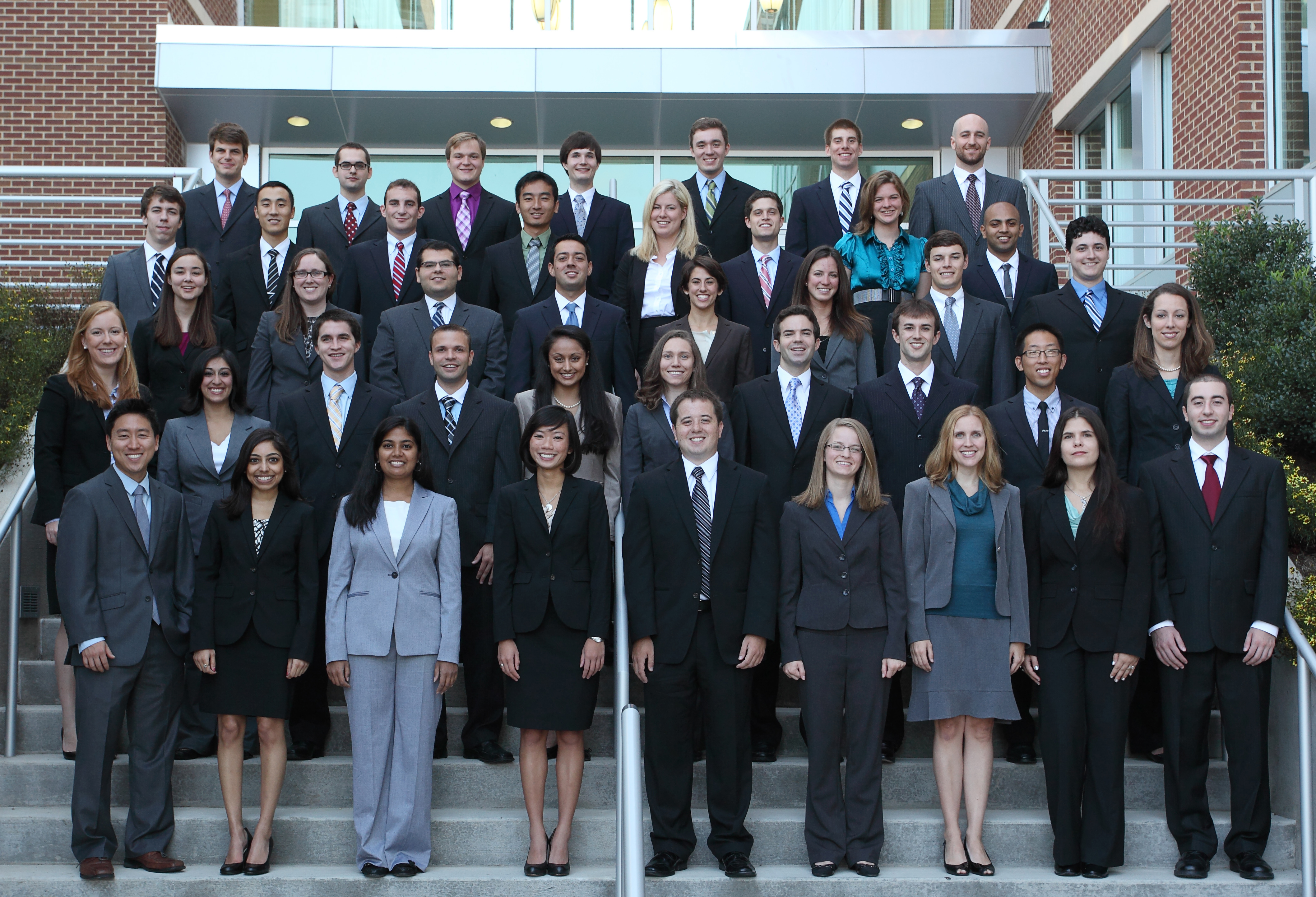Virginia Tech Carilion School of Medicine welcomes its third class

A wilderness educator, an auto-safety engineer, and a high-consequence pathogens researcher — these are just a few of the diverse backgrounds that students bring to Virginia Tech Carilion School of Medicine’s newest class.
When these students, and 39 others, joined the school’s third class in early August, they were part of an exclusive bunch: fewer than 2 percent of applicants were admitted to the Class of 2016. More than 3,200 applicants vied for only 42 slots – nearly double the contenders for the school’s inaugural class just two years ago.
In welcoming the class during orientation, Dr. Cynda Johnson, dean of the school, noted that in today’s complex and rapidly changing medical field, physicians must assimilate an overabundance of facts. “More information than ever exists,” she said, “so we need to teach you more than medicine. We need to teach you how to be critical thinkers and how to be leaders in your field.”
The incoming class is already accomplished. Fourteen members hold graduate degrees in such fields as physiology, epidemiology, and cancer biology. Their MCAT scores ranged from 29 to 40, with a median score of 33.
Members of the Class of 2016 hail from 14 states, with two-thirds from Virginia, Maryland, and North Carolina. Nearly half received their bachelor’s degrees from one of just four institutions: Duke University, Johns Hopkins University, the University of North Carolina at Chapel Hill, and the University of Virginia. Other undergraduate institutions represented include Colgate University, George Washington University, Stanford University, UCLA, the University of Michigan, the University of Pennsylvania, the University of Pittsburgh, the University of Southern California, the University of Wisconsin, Virginia Commonwealth University, Virginia Tech, Wake Forest University, Washington & Jefferson College, and The College of William & Mary.
In an informal survey on their first day, many of the matriculants cited the school’s unique curriculum as its primary attraction. The school focuses on four value domains – basic sciences, clinical sciences, research, and interprofessionalism – to prepare future physicians for the ever-changing medical landscape. Rather than learning passively, students interact with clinic patients and analyze real-life cases in facilitator-guided, small-group discussions. They take classes with nursing, physician assistant, and allied health students, an experience that helps prepare them to thrive in multidisciplinary teams. Threaded throughout the curriculum is instruction in the principles, methods, and ethics of basic, clinical, and translational research.
“The Virginia Tech Carilion School of Medicine has a one-of-a-kind curriculum,” said David Sabbagh, a member of the Class of 2016 who holds a bachelor’s degree in neuroscience from the University of Michigan. “I was impressed with the school's strong research component. I also liked the collaborative culture and opportunity to develop personal relationships with faculty. I chose this medical school over four others.”




